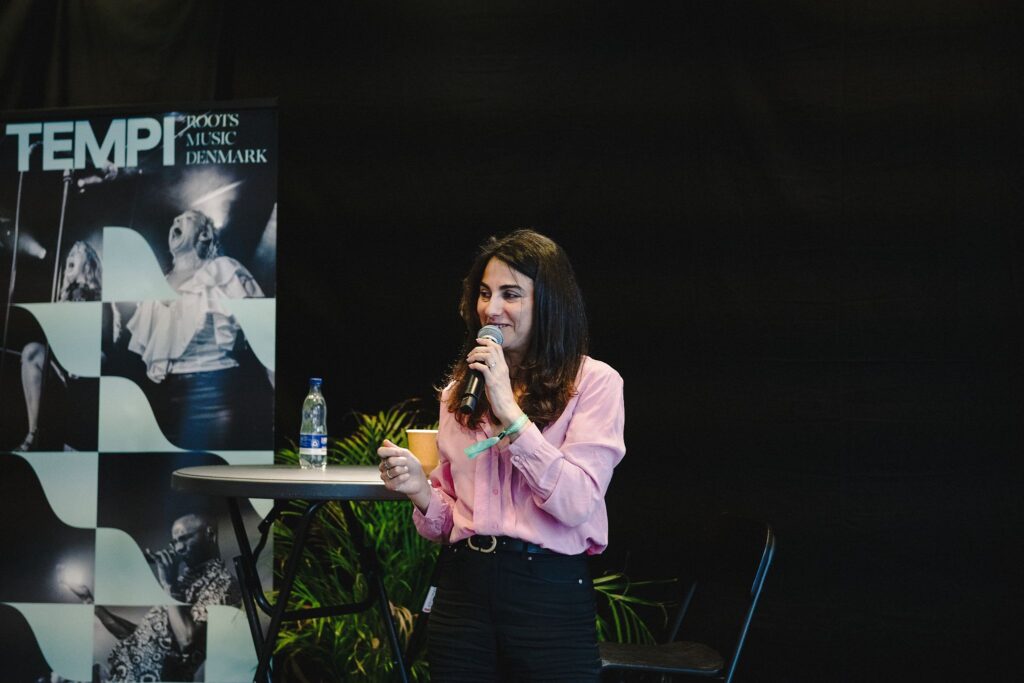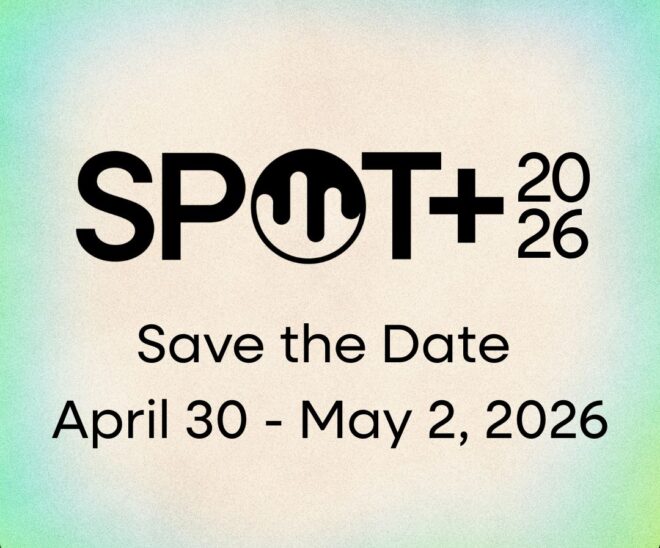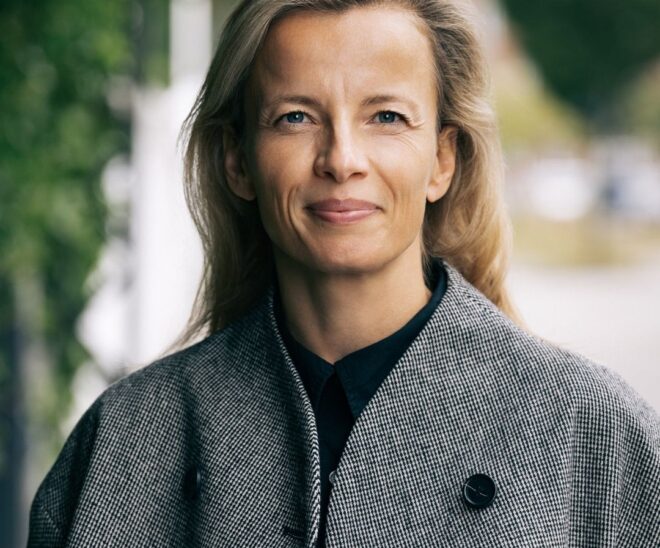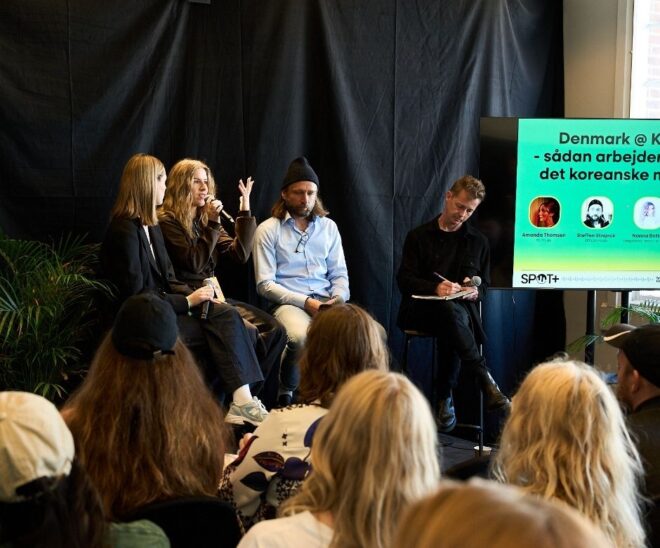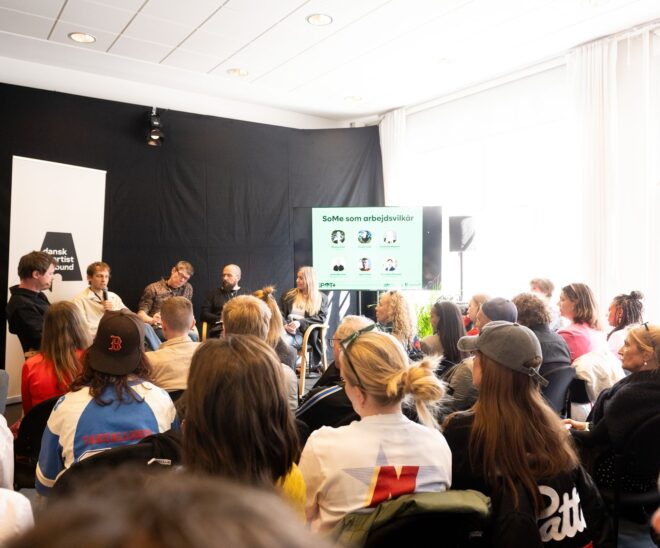Text: Alberte Hyldgaard Prinds
Sustainability – environmental, economic, and social – was at the forefront during the final SPOT+ seminar on Saturday afternoon. The host was Laia Canals, director of TEMPI and an energetic advocate for a new way of thinking about cultural events and booking.
It was made clear that the way artists tour and perform live puts particular pressure on the green transition. Touring is resource-intensive – not just for the planet but also for organizers’ finances and the well-being of artists. Block booking, the focus of the afternoon’s seminar, aims to address all of these challenges.
“We want to create music pools and increase musical diversity,” said Laia Canals, who went on to explain the concept.
In broad terms, it involves bringing together artists, organizers, and bookers in so-called “hubs” – what SPOT, for example, could be considered. Others might call them conferences. Here, artists can introduce themselves, and bookers and live organizers can express interest and then be grouped with others who are also interested in an artist. From there, they can discuss practical details and dates, making broader tours and more opportunities for up-and-coming artists possible.
Supporting this initiative is a so-called “White Book,” intended to serve as a guideline for the practical handling of regulations in the industry and abroad.
According to Laia Canals, block booking has the potential to be a springboard for greater diversity in the industry and to give “small” artists a chance to be seen and heard by more people. At the same time, it would solve practical problems and build bridges between industry players:
“If we work together, the opportunities for everyone will grow, and we can ensure green touring practices,” she concluded.
Photo: Line Svindt
Tekst: Alberte Hyldgaard Prinds
Bæredygtighed, både den grønne, økonomiske og sociale slags, var i vælten på SPOT+ sidste seminar lørdag eftermiddag. Tovholderen var Laia Canals, direktør i TEMPI, og energisk frontperson for en ny måde at tænke kulturarrangementer- og booking på.
Der blev ikke lagt skjul på, at artisters turnéform og koncerter sætter netop den grønne omstilling under pres. Det er ressourcekrævende, ikke kun for planeten, men også for arrangørernes økonomi og artisternes ve og vel. Block booking, som var overskriften for eftermiddagens seminar, er et forsøg på en løsning på netop alle de problemstillinger.
“Vi ønsker at skabe musikpuljer og øge musikalsk diversitet,” sagde Laia Canals, og fortsatte med at formidle konceptet.
Det går i grove træk ud på at samle artister, arrangører og bookere til såkaldte ‘hubs’ – hvad SPOT for eksempel kan siges at være. Konferencer, ville andre måske kalde det. Her kan artisterne introducere sig selv, og bookere og livearrangører kan så angive sig
som interesserede, og herefter blive placeret med andre, der også er interesseret i en kunstner. Så kan de snakke praktiske detaljer og datoer, og på den måde muliggøre bredere turneer og flere chancer til artister in spe.
I forlængelse af initiativet findes også en såkaldt ‘White Book’, som skal agere guideline for praktisk håndtering af reguleringer i branchen og i udlandet.
Ifølge Laia Canals har block booking mulighed for at være et springbræt til større diversitet i branchen, og give muligheden for ‘små’ artister til at blive set og hørt af flere. Det vil samtidig løse praktiske problemer og bygge broer mellem aktører i branchen:
“Hvis vi arbejder sammen, vil mulighederne for alle blive større, og vi kan sikre grønne turnépraksisser,” afsluttede hun.
Foto: Line Svindt

